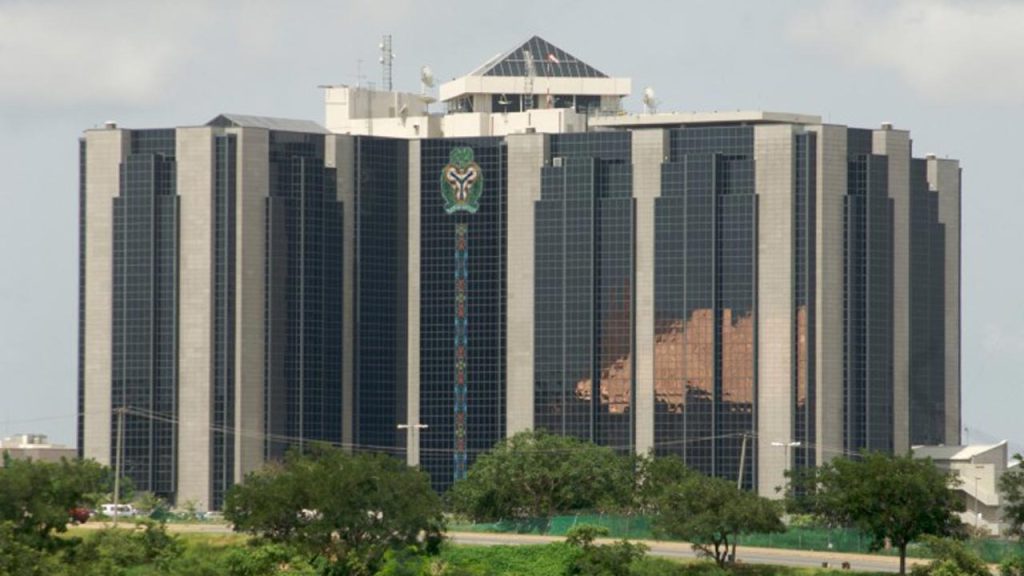The Nigerian government has expressed grave worries about irregularities in the management of public finances after accusing the Central Bank of Nigeria (CBN), of embezzling N2.73 trillion in interest payments from Ways and Means advances.
Under reference number, AuGF/AR.2021/01 and dated July 31, 2024, the Auditor-General, Shaakaar Chira, submitted to the National Assembly the Nigerian government’s consolidated financial statement for the year ending December 31, 2021, which included the allegation.
The dispute revolves around the Ways and Means facility, a short-term lending mechanism that the CBN offers the government to finance budget deficits.
The Nigerian government asserted in the report that the CBN kept interest charges of N2.73 trillion, utilising the money “for its sole benefit” instead of redistributing it back to the Consolidated Revenue Fund.
In addition to N4.4 trillion in Ways and Means advances, the CRF’s negative cash balance as of December 31, 2021, was N17.1 trillion.
“The Financial Regulations of 2009 and the 1999 Constitution of Nigeria (as modified) both forbid taking money out of the CRF or overdrawn government accounts without permission.
“No money may be taken out of the CRF without authorisation from an appropriation act or supplemental act, according to Section 80(2) of the Constitution, while Financial Regulations Paragraph 710 prohibits overdrafts and requires that any interest paid be reimbursed.”

The CRF and four other ministries, departments, and agencies, according to the report, had overdrawn accounts worth N17.1 trillion, a sum that was not backed up by the necessary clearances or documents.
“N9.41 trillion for reconciling domestic debt service, N4.45 trillion for Ways and Means withdrawals, and N483.97 billion for Paris Club loan returns were the components that made up the CRF’s negative balance. CPV coupon payments and deferred state loan deductions were other elements.”
According to the report, “The actual Ways and Means advance of N4.4 trillion taken by the government and interest charged on it for the sole use of CBN as though the Ways and Means a loan from CBN funds or any syndicated group of lenders” was included in the CRF negative balance of N17,105,111,709,523.00 as of December 31, 2021.
In response, the Nigerian government claimed that the CBN had mishandled the Ways and Means facility, misrepresenting the funds as either a syndicated facility from domestic or overseas lenders or loans from its balance sheet.
It claimed that the apex bank had improperly kept the N2.73 trillion interest that was assessed on these advances and demanded that the CRF receive prompt reimbursement.
In contrast to the actual Ways and Means, which was neither a facility from its funds or balance sheet nor a syndicated facility from a group of local and foreign lenders, the report stated that “CBN must therefore refund to the Federal Government of Nigeria the interest of N2.73 trillion it cornered for its sole use as of 31st December 2021.” The interest charged on Ways and Means was misappropriated by CBN for its use.
In contrast to other aspects of the overdraft that the Debt Management Office is handling, the government additionally directed that the interest charges not be securitised.
In its assessment, the Office of the Auditor-General insisted that the conclusions were still valid until the Nigerian government produced proof of the appropriate authorisations and supporting documents for the transactions.
The Auditor-General advised the Accountant-General of the Federation to ensure that the penalties specified in paragraph 3106 of the Financial Regulations were applied for irregular payments from public funds and to provide the National Assembly’s Public Accounts Committees with a justification for the N17.1 trillion overdraft.
According to the audit report, the anomalies were caused by flaws in the Office of the Accountant-General of the Federation’s internal control procedures, and the situation was described as a serious risk to public finances.
It cautioned that unapproved spending and preventable interest payments put the nation at needless financial risk.


